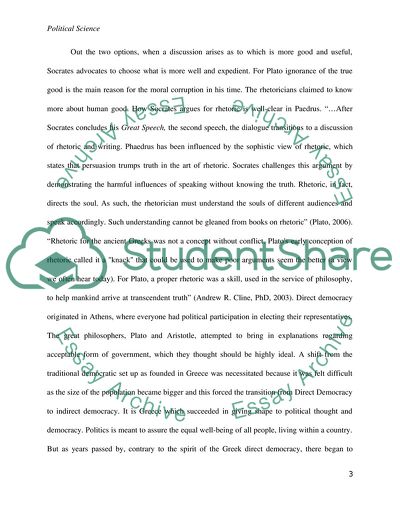Cite this document
(Socrates: Political Thought Essay Example | Topics and Well Written Essays - 1250 words, n.d.)
Socrates: Political Thought Essay Example | Topics and Well Written Essays - 1250 words. https://studentshare.org/politics/1728435-political-science-political-thought
Socrates: Political Thought Essay Example | Topics and Well Written Essays - 1250 words. https://studentshare.org/politics/1728435-political-science-political-thought
(Socrates: Political Thought Essay Example | Topics and Well Written Essays - 1250 Words)
Socrates: Political Thought Essay Example | Topics and Well Written Essays - 1250 Words. https://studentshare.org/politics/1728435-political-science-political-thought.
Socrates: Political Thought Essay Example | Topics and Well Written Essays - 1250 Words. https://studentshare.org/politics/1728435-political-science-political-thought.
“Socrates: Political Thought Essay Example | Topics and Well Written Essays - 1250 Words”. https://studentshare.org/politics/1728435-political-science-political-thought.


